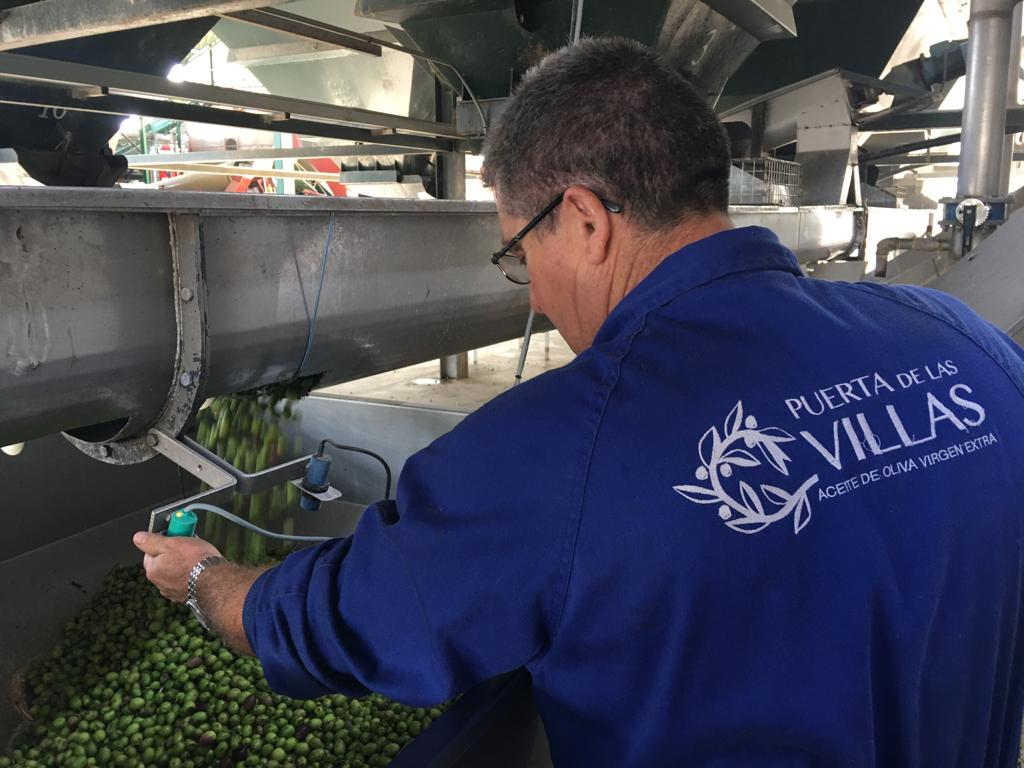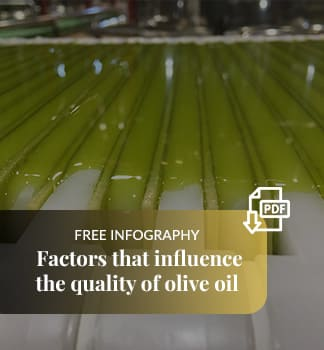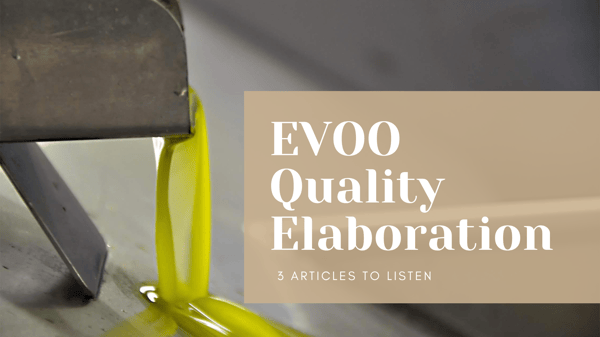Listen to this article
A master miller is the person in charge of carrying out the virgin olive oil extraction process. Nowadays he has also been called Production Manager.
The classic organization chart in a private medium-sized oil mill would be:
- Owner
- Head / Head of Operations
- Master Miller
- Oil Mill Operator
- Backyard Manager
- Mechanic, both for the oil mill and for agricultural machinery
- Farmer
The rest of specific needs as a field technician for advice, labor for the olive harvest, analytics, etc. are usually carried out by outsourcing to external companies.
This would be the minimum equipment for a medium oil mill to operate.
Well, let's focus on the master miller.
Traditionally, the master miller is a person who has been working in the mill from a very young age. Normally, he is even the son of the previous master miller, who was working in the same farm as the father, and who is training alongside his father and his master at the same time. In this way, when the father retires, he passes the baton to the son.
Master millers are currently training in master miller courses, both in person and increasingly online.
For the production of virgin olive oil of low medium quality, it is not necessary to have great academic training, since it is a matter of learning the operation of the machines and following the operation learned by the years of working in the same place.
Two different business models have to be differentiated, one, the companies that want to produce quantity and the other, the ones that bet and prioritizes quality over quantity.
The classic oil mill model prioritizes the quantity, the yield of the olive and not so much the quality. Let us remember that, until very recently, practically all Spanish olive oil was sold in bulk. Nowadays, more and more people are betting on the quality of virgin olive oil,there are more and more studies and advances on how to improve the quality of the oil. Machinery is developing very quickly. The supply of machinery and services is increasing day after day.
Master miller in the Filtering phase. Image Bank. ESAO
It is becoming increasingly important to know in greater depth the bases and fundamentals of the operation of a machine to understand and be able to get the most out of it, not so much looking for quantity but quality.
As the sector develops, the current master miller already knows that it is important to train in tasting, for example, sometimes even master miller students prioritize tasting over other trainings.
Master millers training in VOO Tasting. ESAO image bank.
Until very recently given that quality was not the most important thing, tasting was not important either. As quality was not important for olive oil mills it was not important to know which was the quality of the oil produced.
Once the owner of an oil mill or the managers of a cooperative begins to understand that quality can help them to sell at a better price, it is when they begin to work on quality, and,therefore, they are interested in the training of the Master Miller. In this way, a stream of oil mills arises that train their masters millers, or that hire qualified workers, and, later, teach them how to operate the machines.
It is common to find interested masters millers who want to know how to smell the oil and differentiate possible defects.
Master millers are training and want to know. Every time we meet production managers who are already agronomists, and who are capable of increasing the quality of virgin olive oil thanks to their knowledge and knowing how to combine theory with practice.
The Master miller's job is simple but hard, a job that requires many hours hearing the same noise despite the protections and smelling and absorbing oil vapors in a normally closed cabin.
At the beginning of the day he has to start the machines, he has to process the olives, he has to be aware of all the sounds and aromas of the factory, he has to make decisions, he has to know which tank to send each oil to. And, at the end of the day, after processing all the olives, if your oil mill stops, you must thoroughly clean the entire oil mill to be able to start the next day with all the clean machinery.
Masters Millers at the end of the Master miller course. ESAO image bank
If it is the Master Miller with greater responsibility, and a problem occurs in the process, sometimes he will not go home until he solves that problem and sometimes it will exceed what would strictly be his working day. The Master Miller could be compared today to the "Chef of olive oil". He is the one who has to know how to proceed and what decisions to make about the olives so that the oil comes out of one quality or another, or that it comes out with one aroma or another.
After making the oil, it is important for the master miller to have notions of how to store the oils for better conservation, he will decide whether or not the oil is filtered according to the instructions also from his company and will decide which tanks has to use to direct the virgin olive oil that has just been produced.
The Master Miller, being responsible for the production of virgin olive oil, is one of the most important figures in an oil factory.
.png)





